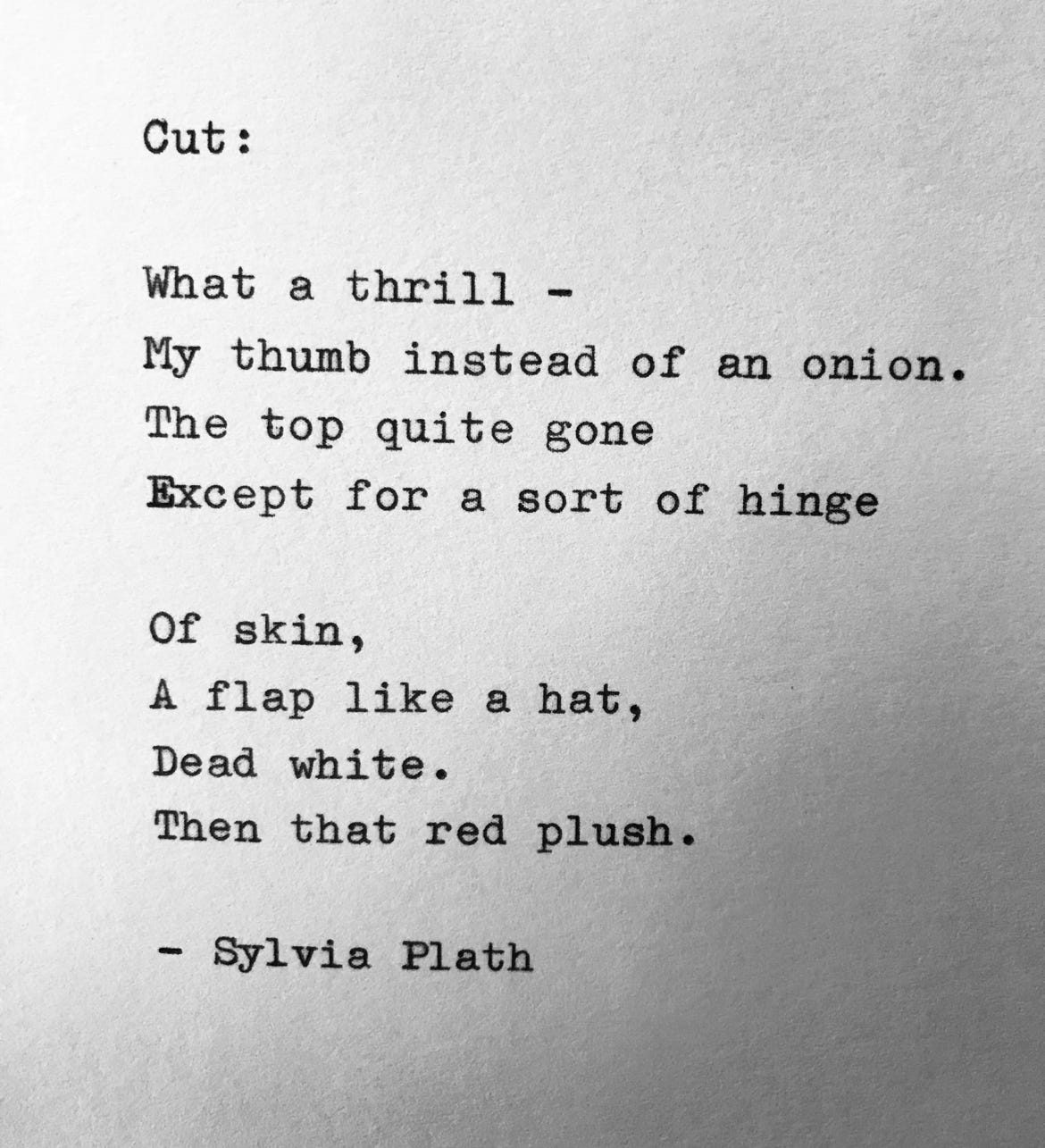“If you expect nothing from somebody, you are never disappointed.” -Sylvia Plath; The Bell Jar
I was introduced to the poetry of Sylvia Plath when I was in the eighth grade. My English teacher, Mrs. Barbados, loved poetry and our interpretations of it. The first poem I read by Sylvia Plath was, “Daddy”. The last lines,
“There’s a stake in your fat black heart
And the villagers never liked you.
They are dancing and stamping on you.
They always knew it was you.
Daddy, daddy, you bastard, I’m through.”Her poetry resonated with me. It was a validation for me that my conflicting emotions of depression yet the love for life were not singular to me. She wrote about her struggles in metaphor, which I still do to this day. Plath gave me the key to unlocking a code that allowed me to express my feelings openly yet veil them so I could avoid backlash or repercussions.
The poem, “Novelty Fades” from my book,
Lifting the Veilis an example of how I have retained that ability to use veiled metaphor to express my emotions. A few lines,“It shouldn’t matter.
If I break or I shatter.
You get what you need.
Emphasis on the latter.”
“Novelty Fades” is a poem about having feelings for someone you initially think is a great person and then finding out they are actually using you as a means to an end. Having that knowledge causes your feelings for them to dissipate, yet as a person you have still been met with their abuse; feelings or not.
In her poem, “Daddy”, Plath writes about her father and the abuse she suffered during his life and how his death freed her from that. Plath was familiar with abuse, even after her father passed away. It is well-known that she was abused by her husband, fellow poet, Ted Hughes. Her depression and abuse eventually led to her death. She committed suicide in 1963.
The words she wrote about expecting nothing have rung so true throughout my life. It seems whenever I set expectations for another person I have met disappointment. I have learned and adapted myself to rely solely on myself for the things I need. It has created a resourceful trait in me that I might otherwise not have had.
I love life, yet it does seem that I cannot expect too much out of it. The disappointment leads to depression and I understand that part of her words. I cannot end up with my head in an oven.
I wish Plath had more time to write. Everything she wrote feels so true to me that I wish I could learn more. If she had grown old what words would have been penned? What wisdom imparted on women like me? She has been a friend in my loneliness. Someone who understood this dichotomous mindset. Yet her tragic death and my yearning for more words from her allow me to imagine a longer life for myself; hoping my words will someday resonate with people as hers have for me.




